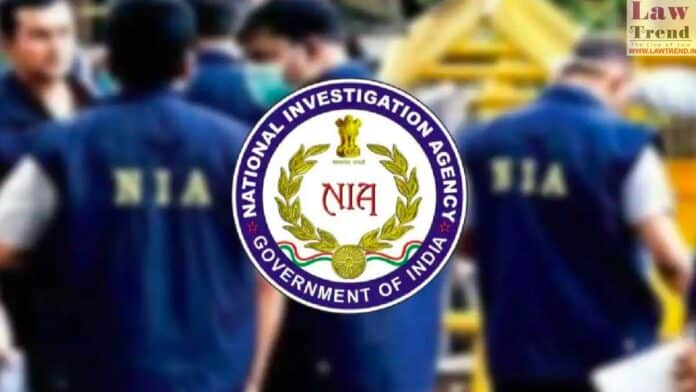A special court in Lucknow convicted eight suspected ISIS operatives in a terror conspiracy case, an official of the National Investigation Agency (NIA) said on Saturday, adding their conviction was a “big shot” in the arm of the agency in its nationwide crackdown on members of the global terror group.
The quantum of punishment will be pronounced by the special NIA court on Monday, a spokesperson of the federal agency said.
The convicts were also involved in an explosion on board the Bhopal-Ujjain passenger train on March 7, 2017, which hed left 10 people injured. The train explosion case is currently under trial, the spokesperson said.
The eight convicts were arrested in 2017 in the “Kanpur conspiracy” case pertaining to planning of terror acts. The case was registered under various sections of the Indian Penal Code, Unlawful Activities (Prevention) Act, Arms Act and the Explosive Substances Act.
The case was initially registered on March 8 at ATS Police Station in Lucknow and re-registered by NIA six days later.
The NIA investigation revealed that they had prepared and tested some improvised explosive devices (IEDs) and unsuccessfully tried to plant them at various locations in Uttar Pradesh.
A notebook seized from a hideout of the group in the Haji Colony area of Lucknow was found to contain handwritten notes about potential targets and details about bomb making, the spokesperson said, adding the investigation also led to the discovery of several photographs of the accused making IEDs and even with weapons, ammunition and ISIS flag.
The spokesperson said the group had reportedly collected illegal weapons and explosives from various places.
One of the convicts, Atif Muzaffar, disclosed that he had compiled information on techniques to fabricate IEDs after collecting materials from various internet sources, the spokesperson said.
The investigation also revealed that Muzaffar and three others — Mohd Danish, Syed Meer Hasan and Mohd Saifulla — had been responsible for fabricating the IED that was planted on the Bhopal-Ujjain passenger train.
The official said the breakthrough in the ISIS-backed criminal conspiracy case came when the main accused, Mohd Faisal of Kanpur Nagar, was arrested for his involvement in the train explosion, the official said, adding disclosures made by him led to the arrest of two of his associates — Gauss Mohammad Khan alias “Karan Khatri” and Azhar Khan alias “Azhar Khalifa” — on March 9 and Asif Iqbal alias “Rocky”. All of them are residents of Uttar Pradesh.
The NIA filed a charge sheet in the criminal conspiracy case against all the eight persons on August 31, 2017, the spokesperson said.
According to the NIA spokesperson, investigations in the case had clearly shown that the accused were members of ISIS and had sworn bayat’ (allegiance) to the Islamic State and its leader Abu Bakr al-Baghdadi.
“Muzaffar was the group’s Emir (leader) and was influenced by the propaganda of (Islamic preacher) Zakir Naik. He was found to be a frequent visitor to IS-related websites, from where he was downloading contents and videos and sharing it with the others in his group,” the spokesperson said.
The NIA said all eight had come together to propagate ISIS ideology and promote its activities in India.
“In pursuit of this objective, Faisal, Gauss Khan, Muzaffar, Danish and Saifulla had explored land routes. They had visited several key cities across the country, including Kolkata, Sundarbans, Srinagar, Amritsar, Wagah Border, Barmer, Jaisalmer, Mumbai, and Kozhikode, for undertaking hijrah’ (migration).
“Khan and Muzaffar had, in fact, explored a route to cross over to Bangladesh via Sundarbans, as per the investigations. Faisal, Atif and Saifulla had also travelled to Kashmir in March 2016 in a bid to contact some terrorist groups that could help them to cross over to Pakistan, from where they could migrate to ISIS controlled territories in Syria,” the spokesperson said.
Another accused, Saifulla, was killed during an exchange of fire with the ATS UP on March 7, 2017, in Haji Colony. The police had seized several weapons and incriminating documents from the group’s hideout in Haji Colony.
These seizures included a huge cache of arms, ammunition, electronic gadgets and other materials required to fabricate IEDs, and documents including an ISIS flag, eight pistols, five gold coins and cash worth Rs 62,055, the spokesperson said.




